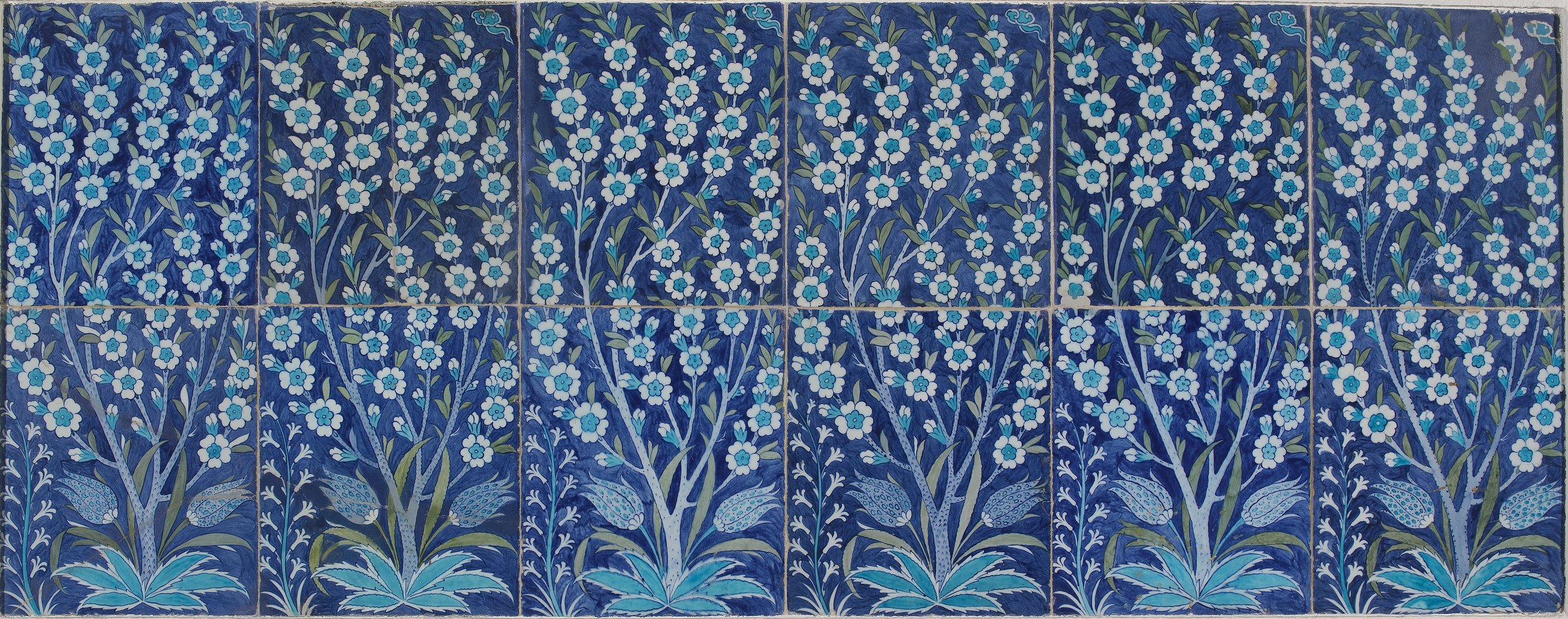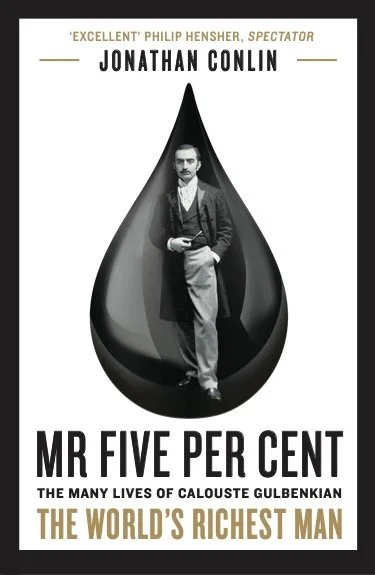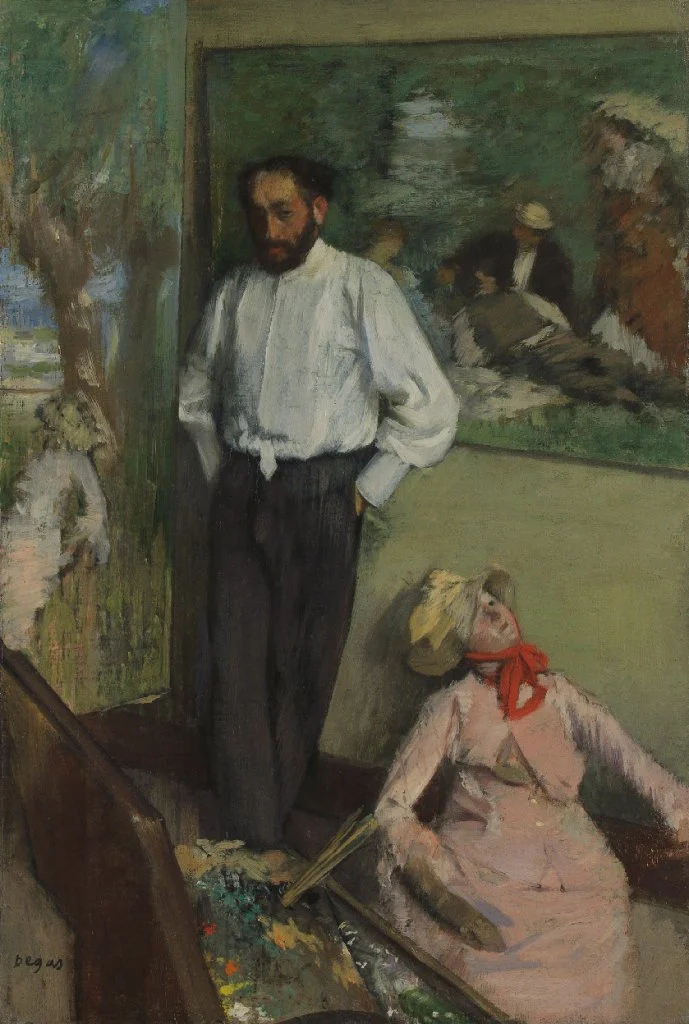MR. FIVE PER CENT:
THE MANY LIVES OF CALOUSTE GULBENKIAN
Profile, 2020.
King of oil, deal-maker, art collector
When Calouste Gulbenkian died in 1955 at the age of 86, he was the richest man in the world, known as 'Mr Five Per Cent' for his personal share of Middle East oil. The son of a wealthy Armenian merchant in Istanbul, for half a century he brokered top-level oil deals, concealing his mysterious web of business interests and contacts within a labyrinth of Asian and European cartels, and convincing governments and oil barons alike of his impartiality as an 'honest broker'. Today his name is known principally through the Gulbenkian Foundation in Lisbon, to which his spectacular art collection and most of his vast wealth were bequeathed.
Winner of the BAC Wadsworth Prize for Business History 2020.
Evening Standard London Bestseller.
Translated into Turkish, Armenian, Russian, Portuguese, Chinese and Korean.
GULBENKIAN'S HOME TOWN
Although Gulbenkian was born in Istanbul in 1869, the Gulbenkian clan were closely associated with the central Anatolian city of Kayseri, or rather the village of Talas, which overlooks Kayseri from a foothill of Mount Argaeus. When I visited Talas I was shown around by the only surviving Armenian, Sarkis Tekke. The church, school and other buildings that generations of Gulbenkians had endowed lay in ruins, mined for building materials in the century since the 1916 genocide scattered and destroyed the sizeable Armenian population of this multi-ethnic community.
Kayserians are renowned traders. In her account of visiting Talas in 1909, Gertrude Bell quotes remarks made by two of her companions, one of them the zaptieh, or guard assigned to her by the Ottoman governor.
Young Gulbenkian (left) with two relatives, c. 1876
Upon a day [said the zaptieh] the devil came to Kaisarîyeh. 'Khush geldi,' said the people, 'a fair welcome,' and they showed him the streets and the bazaars of the city, the mosques and the khâns, all of them. When he was hungry they set food before him till he was well satisfied, but when he rose to depart, he looked for his cloak and belt and they were gone. The devil is not safe from the thieves of Kaisarîyeh."
"God made them rogues," said Fattûh.
"What can we do?" observed the zaptieh philosophically...."the world is all one."
"Great travelling they make," continued Fattûh. "In every city you meet them."
I was standing outside the only surviving Armenian church in Kayseri waiting for my guide when a passer-by stopped. "If you like it," he said, pointing up at the church, "we can sell it to you."
REVIEWS
-
“Gulbenkian was the Old World's answer to thrusting American tycoons such as Andrew Carnegie and John D. Rockefeller, famous, respectively, as a ruthless buccaneer and a munificent philanthropist. The difference is that Gulbenkian always preferred life in the shadows, which is why he is not so well known. The first modern biography of this frustratingly elusive figure, [Conlin] does a fine job of digging beneath the legend.”
Dominic Sandbrook in the Sunday Times
-
“Mr Five Per Cent is written precisely, with flashes of dry humour, and Conlin wears the depth of his research lightly. The story he tells is one of a businessman playing off great powers in the Middle East, exploiting the world's financial architecture, avoiding accountability, making a fortune, and spending it on a life of luxury. Gulbenkian may have been a unique talent of a past age, but his heirs are all around us.”
Oliver Bullough, in The Guardian
-
“This is an excellent book, guiding us with a sure hand and a lucid talent for exposition through the very different worlds of connoisseurship, family trauma and the making of millions. Conlin frankly admits when one of Gulbenkian's business dealings, intended to be obscure, remains impenetrable. He compels unwilling admiration for the sheer tenacity of his hero over decades, while leaving us in no doubt of the hellish narrowness of Calouste's focus.”
Philip Henscher, in The Spectator
INTERVIEWS
-
Gulbenkian's great-grandson Martin Essayan and the business historian Joost Jonker joined me in this episode of The Forum. Martin shared his father's memories of Gulbenkian, while Joost discussed Gulbenkian's part in creating the supermajor we know as Shell.
-
The controversial epilogue of Mr Five Per Cent revealed how one of Gulbenkian's trusted advisors collaborated with the Portuguese dictator Salazar to make his proposed Gulbenkian Foundation into a "gift to Portugal", rather than a "gift to humanity", as Gulbenkian wanted. Given the Foundation's importance to the cultural life of Portugal, this attracted considerable attention in Portugal. The President of Portugal, H. E. Marcelo Rebelo de Sousa, spoke at my book launch at the Gulbenkian Foundation, Lisbon in 2019. Here we are photographed together. The debate was picked up further afield, giving me a rare opportunity to dust off my German for an interview with Deutschlandfunk Kultur.








